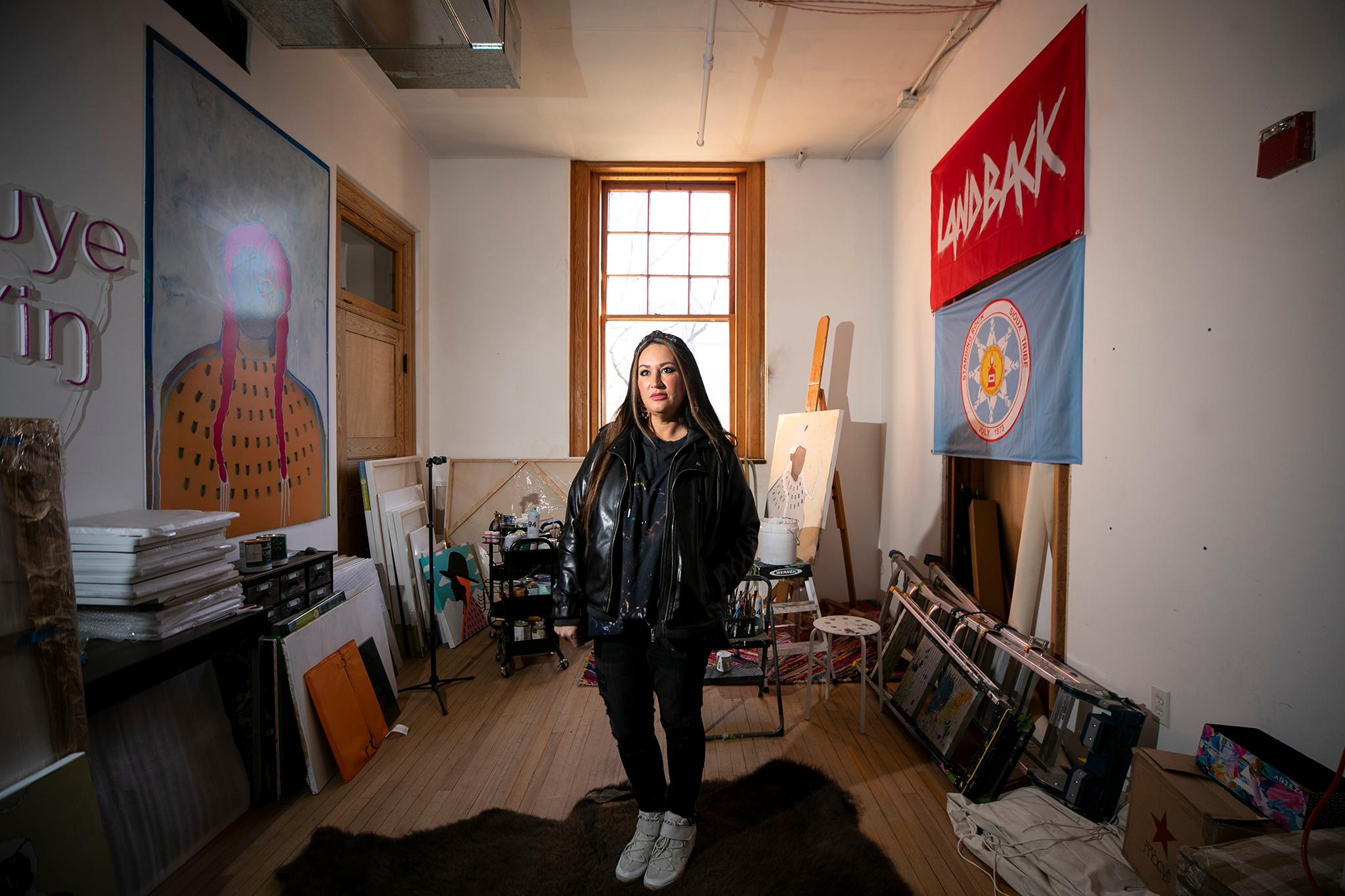On one wall of Danielle SeeWalker's art studio are pink neon letters with the Lakota prayer, "Mitákuye Oyás'iŋ" (We are All Related). On the wall across, two flags hang, one above the other: the top one has the word "Landback" with a bright red backdrop; the other is a light blue Standing Rock Sioux tribe flag.
SeeWalker, standing in the middle of the room, reflecting on her most recent commissions with entertainment giants Disney and Paramount: "It challenges this idea of what Native art is supposed to be or look like. I think it confuses people but I'm here for it."
In the lead-up to the Super Bowl, SeeWalker was invited to paint a mural alongside two other Native artists by Paramount, owner of CBS, which aired the big game this year. This year's matchup featured Kansas City, a team and fanbase regularly criticized for using Native American names and imagery.
In January, SeeWalker unveiled her artwork commissioned by Marvel Studios to help promote the new Disney+ series "Echo," a story about a Choctaw superhero named Maya Lopez.
And this week, SeeWalker's exhibition, "But We Have Something to Say," will open at History Colorado.
The exhibition explores issues important to Native American people and communities, challenging visitors preconceptions of Indigenous art and giving people a chance to see some of History Colorado's collection paired alongside SeeWalker's contemporary works. It'll be open Feb. 29 through Sept. 15.
It's difficult for SeeWalker to talk about these past few months and her latest achievements without it sounding like boasting. But, she says, behind her success is a mission that's near and dear to her heart: Native representation.
"Had I seen art that represented me, maybe my identity or self-confidence would have been a lot different than what it was," SeeWalker said. "I love working with schools and kids because I reflect back on my childhood."

A Húŋkpapȟa Lakȟóta citizen from the Standing Rock Sioux Tribe, SeeWalker grew up in Bismarck and moved to Denver in 2018
A self-taught artist who didn't begin publicly showcasing her work until 2020, SeeWalker describes a tumultuous upbringing on the reservation, raised by two parents who suffered from alcoholism.
"We were super poor," SeeWalker said. "My mom was a teen mom. My dad was incarcerated, in and out of prison a lot of my childhood. I just always knew deep down inside that I wanted to break that cycle. I can't explain it but I knew that from a really young age."
SeeWalker completed her final year of high school in Philadelphia. After that, she attended college, a time during which she gave birth to her first son and worked three jobs to support herself.
"I just went to class and worked," she said.
SeeWalker would go on to receive her Master's in Counseling Psychology, something she says was inspired by a desire to address her own trauma while also helping others experiencing the same.
"In the Native community there's not a lot of mental health therapy approaches that are very culturally sensitive," SeeWalker said. "I wanted to do that. Ultimately, I didn't."
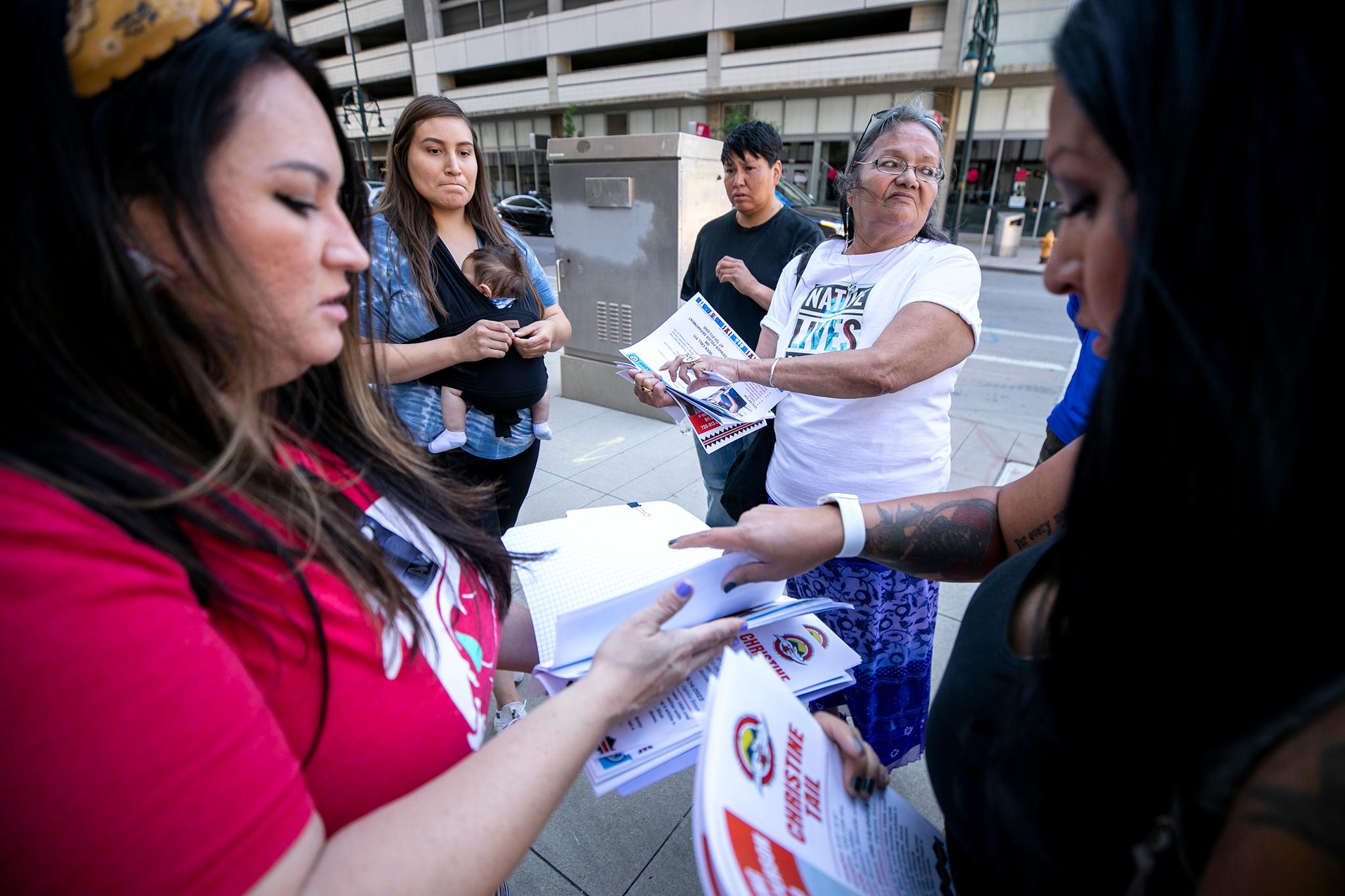
SeeWalker has instead developed a career as an 'artivist,' using her art and community platforms to help bring awareness to Indigenous issues
"She's a worker," said Joshua Emerson, a Diné comic and former co-chair of the Denver American Indian Commission alongside SeeWalker.
"[SeeWalker], I look up to a lot, sort of like a big sister," Emerson said. "It's really cool to see she's taken a step from regional to national, international a little bit."
In 2021, SeeWalker worked with Senator Jessie Danielson on the Prohibit American Indian Mascots Bill, a measure that would ban the use of such mascots by public schools including charter, institute charter schools, and public institutions of higher education. Shortly after, SeeWalker invited Danielson to attend an exhibit in Boulder curated alongside Navajo artist JayCee Beyale raising awareness and demanding action for the injustices surrounding missing and murdered Indigenous women, girls and two-spirit people.
According to Emerson, one of SeeWalker's biggest wins as co-chair on the Denver American Indian Commission was her advocacy and legislative work behind the creation of the Office of Liason for Missing and Murdered Indigenous Relatives (MMIR) established in 2022 as a way to bring awareness to the disproportionately high rate of missing people and homicide cases among Indigenous communities.
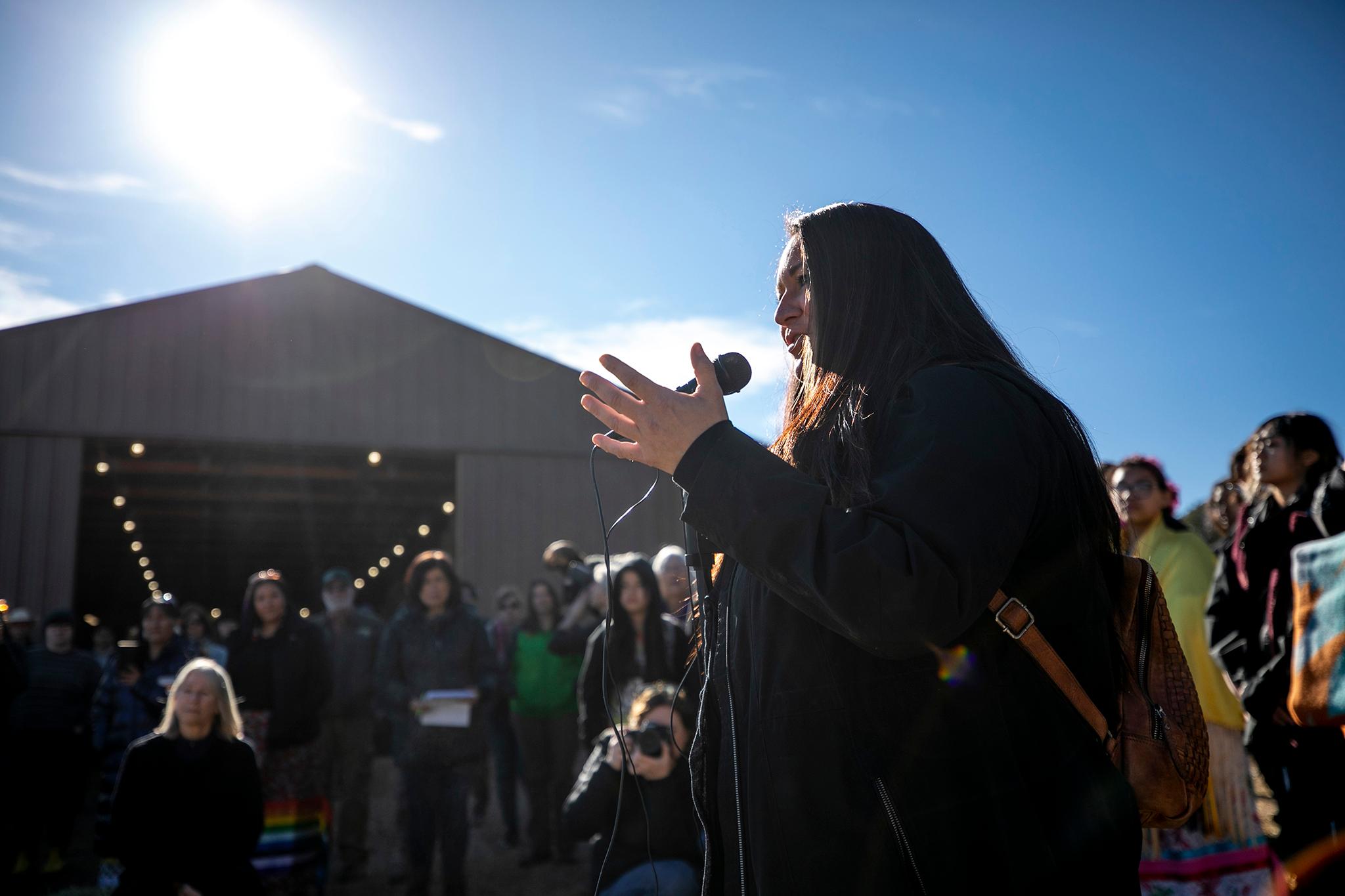
Last summer, SeeWalker became an Emmy Award-winning illustrator for her contributions to the Rocky Mountain PBS documentary titled, "A New Chapter," a story shedding light on a book published in the 18th century bound in the skin of a murdered Native American man.
"I think that's always been instilled in me from my dad," SeeWalker said. "He'd always tell me, "if you don't speak up Danielle, nobody's going to do it for you." I'm really trying to tell these stories and redirect the narrative on who our communities are in the 21st century through art."
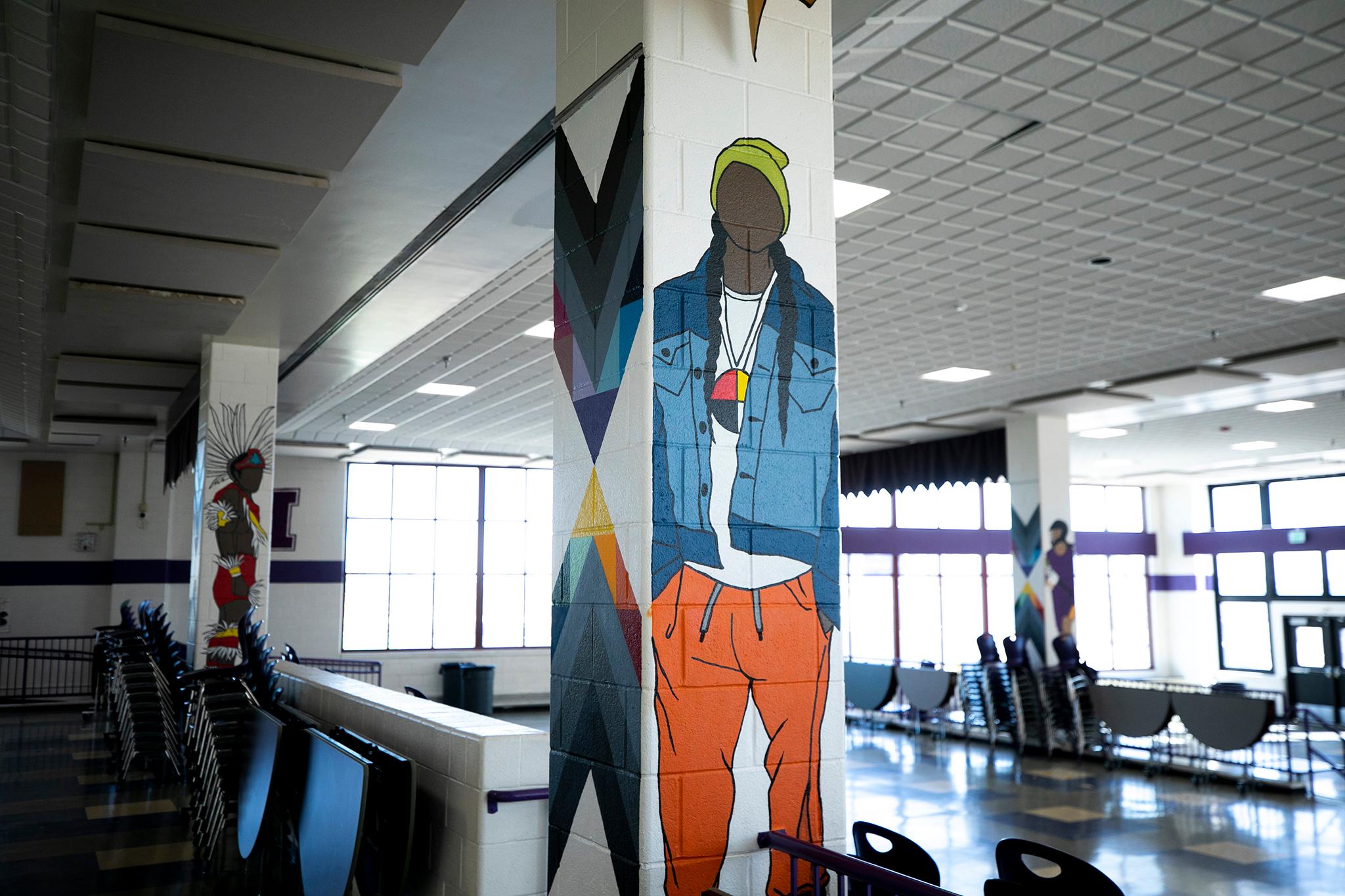
SeeWalker's work challenges what Native art is often expected to look like -- a tone on display at her new exhibition
When Felicia Bartley was hired at History Colorado, she was one of the only Native people on staff. Working alongside SeeWalker was her first curatorial collaboration with an Indigenous artist.
"Her color palette is incredible," said Bartley, an assistant curator of Indigenous Culture and Heritage at History Colorado. "I remember that immediate rush of excitement just to work with another Native woman."
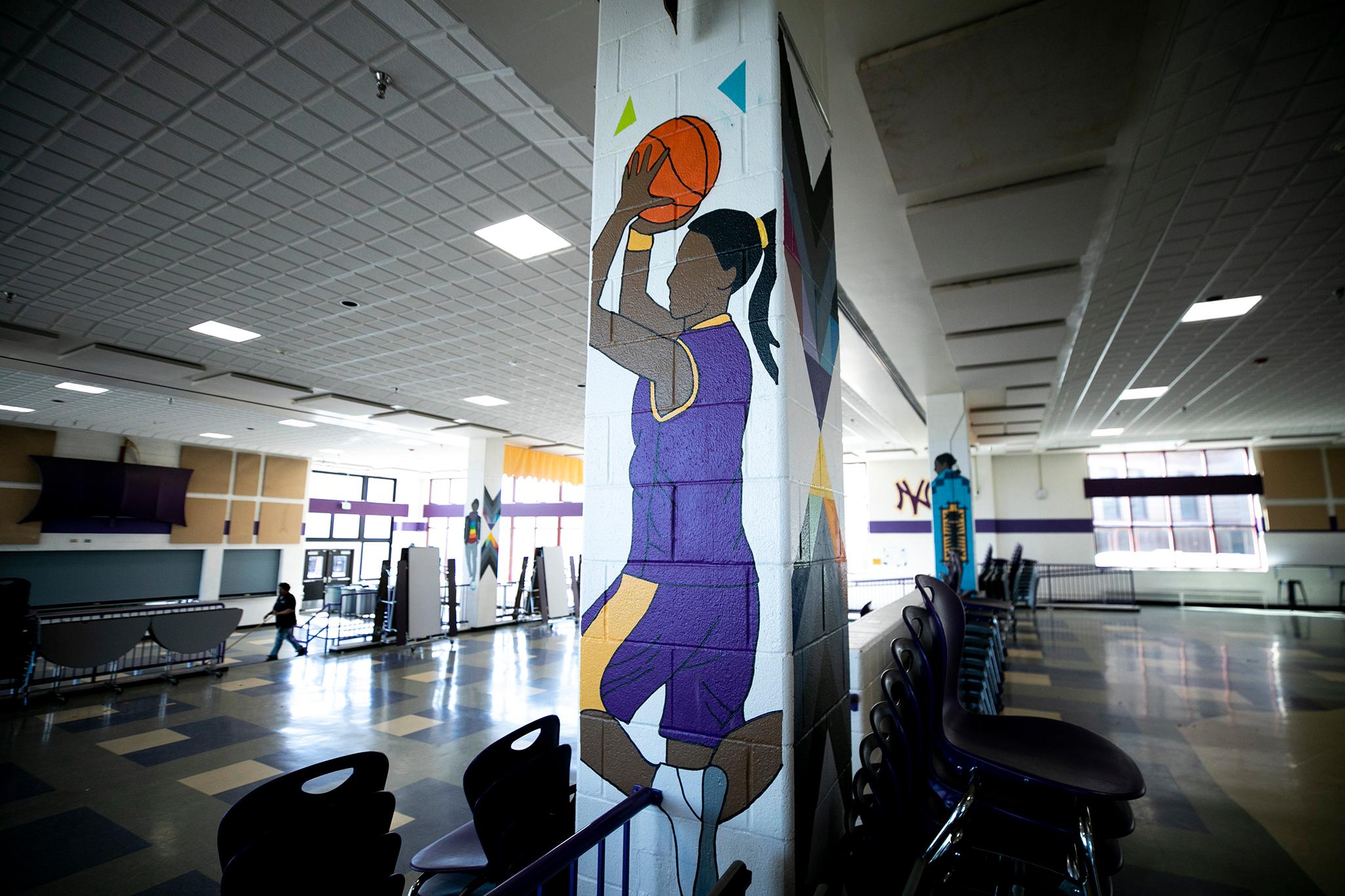
For Bartley, raised in the Pueblo of Isleta, SeeWalker is just as much an artist as she is a historian, drawing on personal and lived experiences that help carry Native art from out of ahistorical categories like fiction, myth and fantasy into the mainstream.
"Working with [SeeWalker] and the collection has been, I hope other people feel this way too, it's almost been a validating experience," Bartley said. "Having [SeeWalker] here and working with her, providing a contemporary presence to the collection is really powerful."
Witnessing SeeWalker work with major companies and organizations like Disney, Paramount and even the Denver Broncos, Bartley said, pushes "back on the narrative that Native people don't exist anymore. [SeeWalker] is confronting that narrative that Native people are still here, we still exist and we're still creating our futures."
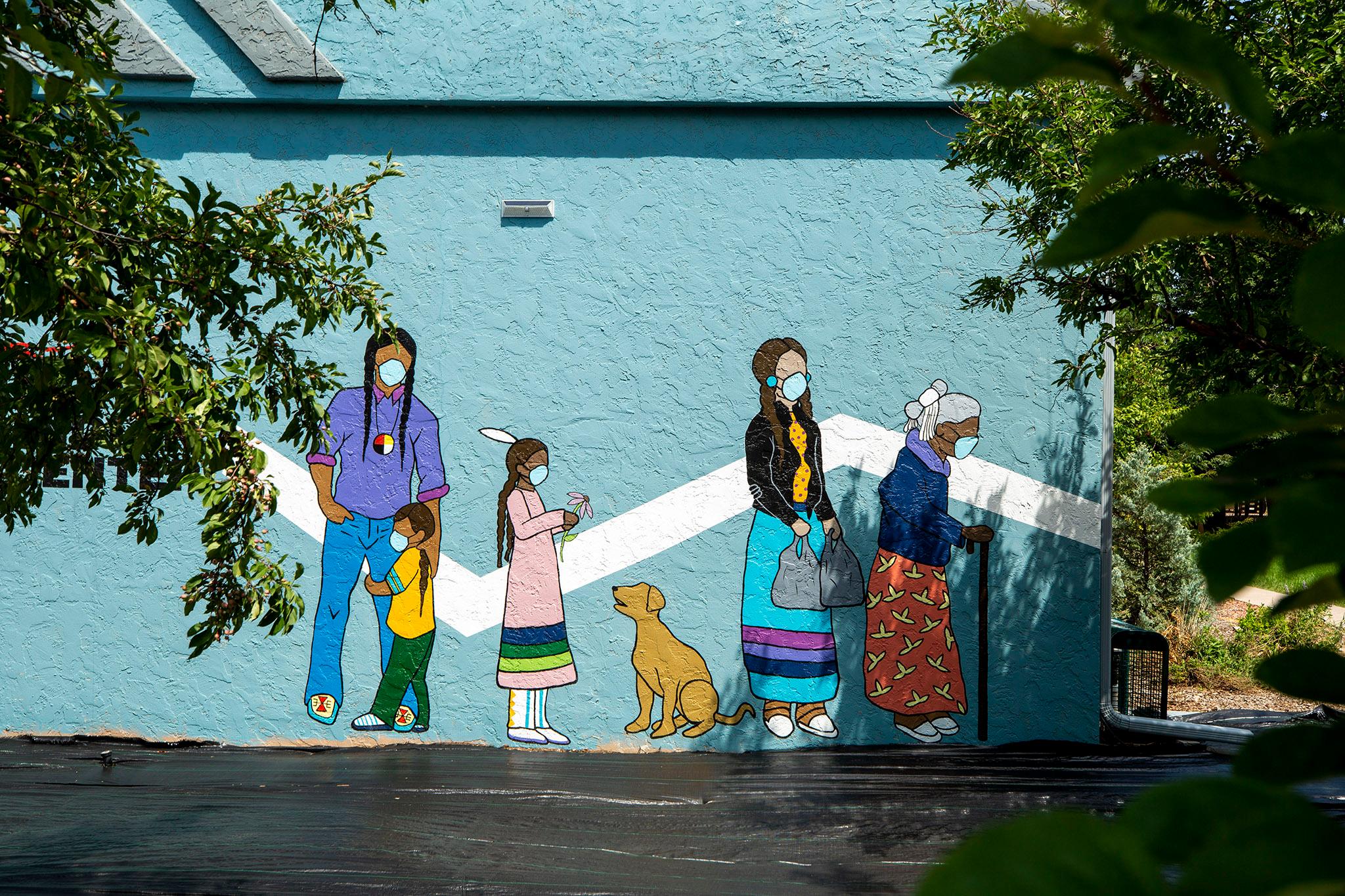
SeeWalker's work and influence can be seen and felt across the city
As part of the Denver Broncos Stadium Artist Series, helping amplify local art in Denver, SeeWalker was one of the artists invited to create a mural inside of the stadium at the end of 2023. Her work can also be seen at the Denver Indian Center, Denver Central Market, the Denver Zoo and a number of Denver Public Schools like North High School, Brown International Academy and the Denver School of Innovation and Sustainable Design, to name a few.
When SeeWalker isn't working in her art studio or as a self-proclaimed "boy mom" of two, she's working as an Account Executive for the French multinational Michelin tire company.
"Rubber is not sexy," SeeWalker jokes. "But I've always been a car person and I love cars, which is another passion of mine outside of art."
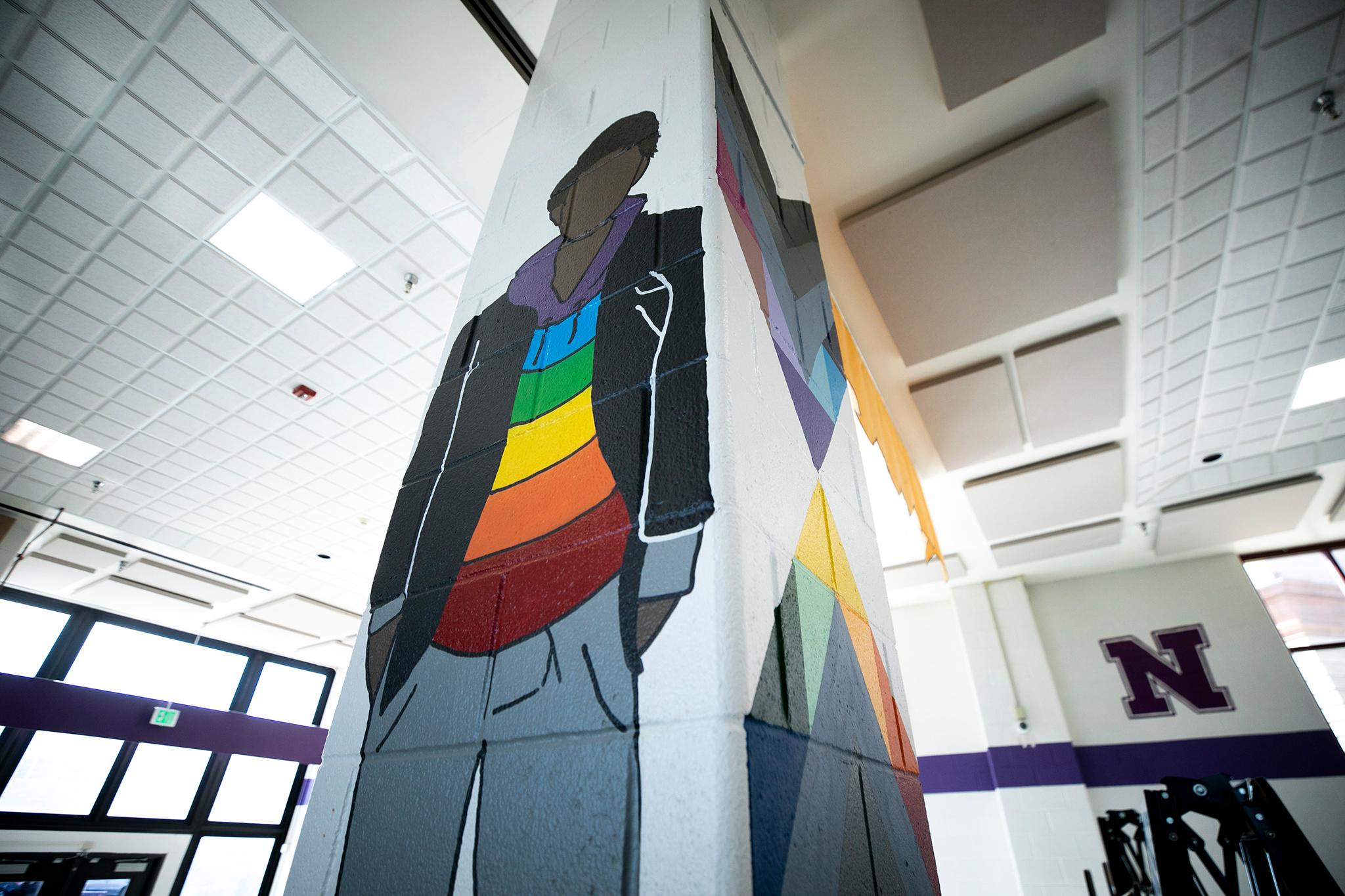
Some of the exhibition at History Colorado has been translated into Lakota, at the request of SeeWalker. For Bartley, receiving the translations was a moment that will stick with her.
"When they finally arrived, I think has been one of the most emotional aspects of this exhibition," Bartley said. "To know that when people walk into this exhibition the very first language they are going to see is Lakota."
Emerson will perform at this summer's Netflix is a Joke Festival in Los Angeles, career moves that he credits fellow artists like SeeWalker for inspiring.
"Native is in vogue right now," Emerson said. "We got to make it so that the successes that [SeeWalker] is having aren't just one-offs. It takes a community to make sure that we keep pushing the space that she has recreated for us."
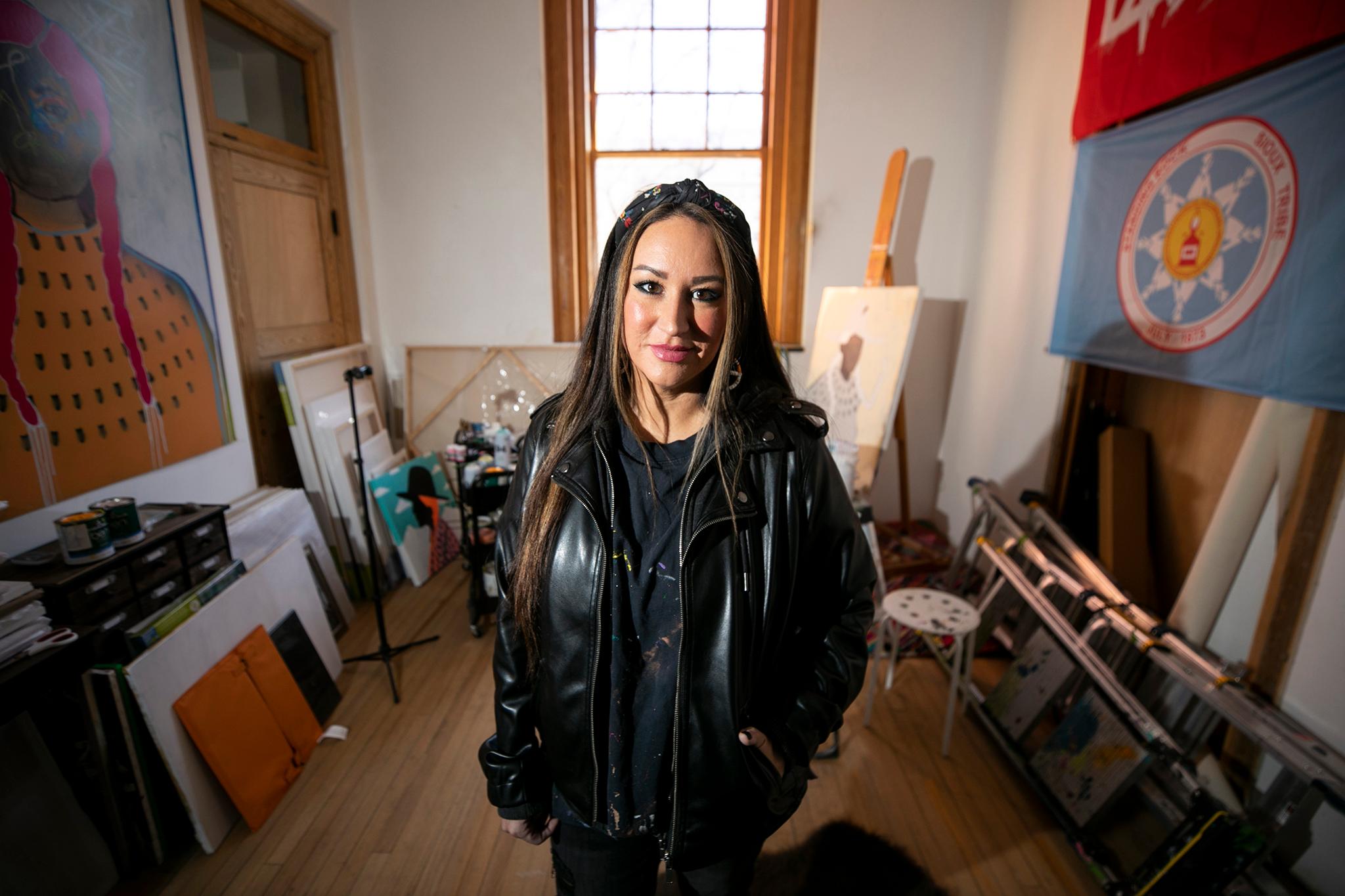
Next to SeeWalker's studio door is a portrait of a child smiling wearing a pretty white and red dress. It's Danielle, and the portrait was drawn by her father who will have passed away 10 years ago this April.
"[Dad] had such a tough life growing up and made mistakes along the way," SeeWalker said. "But he always instilled in me what I need to do to be a good relative, a good community member, a good mother. He is one of my greatest teachers and somebody that I think about all the time when I'm creating."

